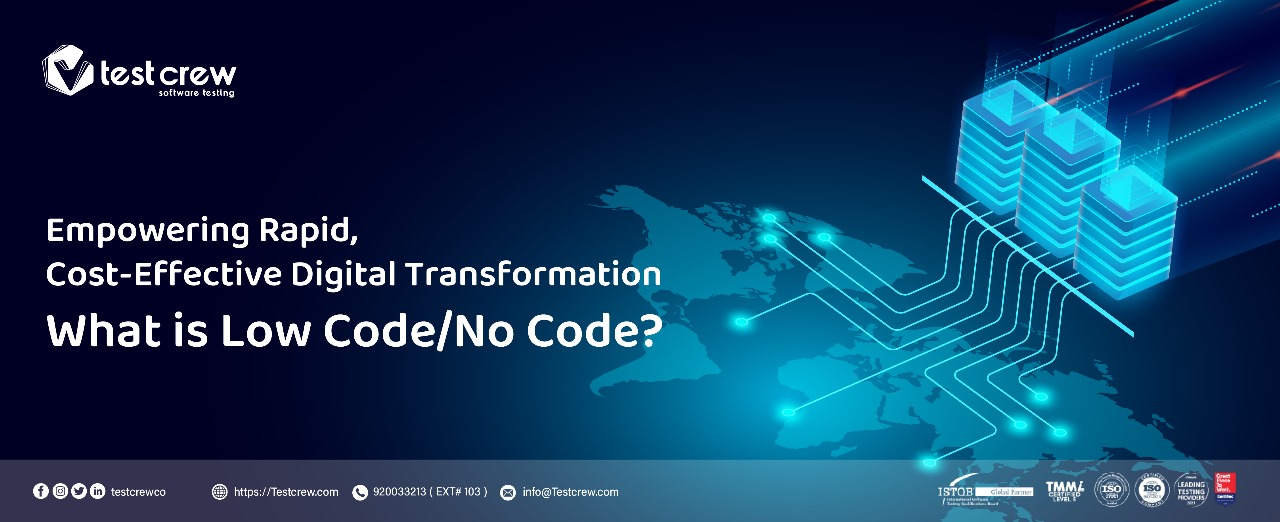
Application development is no longer a trend for businesses to follow, it is a must to streamline business operations online and bring the business closer to its customers. Yet “faster time to market” and “lower expenses” are still the key in decision-making processes. Fortunately, by turning to low code/no code application development, businesses cut these […]
Application development is no longer a trend for businesses to follow, it is a must to streamline business operations online and bring the business closer to its customers. Yet “faster time to market” and “lower expenses” are still the key in decision-making processes.
Fortunately, by turning to low code/no code application development, businesses cut these costs off and found an easy way to even create their apps on their own!
“According to Gartner’s recent research, by 2025, 70% of new apps built by enterprises would use low-code or no-code technologies, up from less than 25% in 2020”
What is the Low Code/No Code app development?
Low code/no code is a method of application development but in a simpler and almost codeless way. This innovative method allows individuals to create basic apps through the visual software environment where it uses drag-and-drop functionalities and pre-built modules.
LCNC offers something tempting especially in app development; the ease of use, and cost effectiveness. This greatly helps both business teams and IT teams to find a common line to stand on.
Despite the similar umbrella that the low code and no code methods fall under, each of them has different definers that are as follows:
Low Code Development
Low code development involves utilizing drag-and-drop features to streamline the app creation process, significantly reducing the need for extensive coding or scripting. While it offers a simplified approach, it still allows for minimal coding input, particularly beneficial for developing moderately complex applications.
No Code Development
In contrast to low code development, no code development requires zero coding expertise to create basic applications. Users rely solely on intuitive drag-and-drop functionalities, eliminating the need for any level of coding. This approach enables even individuals without programming background to effortlessly build and deploy applications.
Who can Use LCNC?
Because of the simple way of app development that the LCNC provides, and the minimized coding knowledge it requires, individuals from all hues can use it easily and efficiently in creating apps on their own.
However, people often go for LCNC when they either:
Advantages of Low Code/No Code
Challenges associated with LCNC
While low code/no code (LCNC) development offers numerous benefits, it also presents unique challenges that businesses must navigate to ensure successful implementation. Here are some of the key challenges associated with LCNC:
Low Code/No Code App Testing with TestCrew
With businesses increasingly adopting LCNC platforms to expedite their digital transformation endeavors, the need for specialized testing services is of no less importance.
TestCrew offers a comprehensive suite of specialized testing services specifically designed for LCNC applications. These services span functional testing, usability testing, performance testing, and security testing, among others. By conducting thorough testing across all facets of LCNC applications, TestCrew ensures that they meet stringent quality standards, perform optimally, and deliver an exceptional user experience.
Partner with TestCrew today and ensure the reliability, performance, and success of your app development journey. Contact us now to get started!